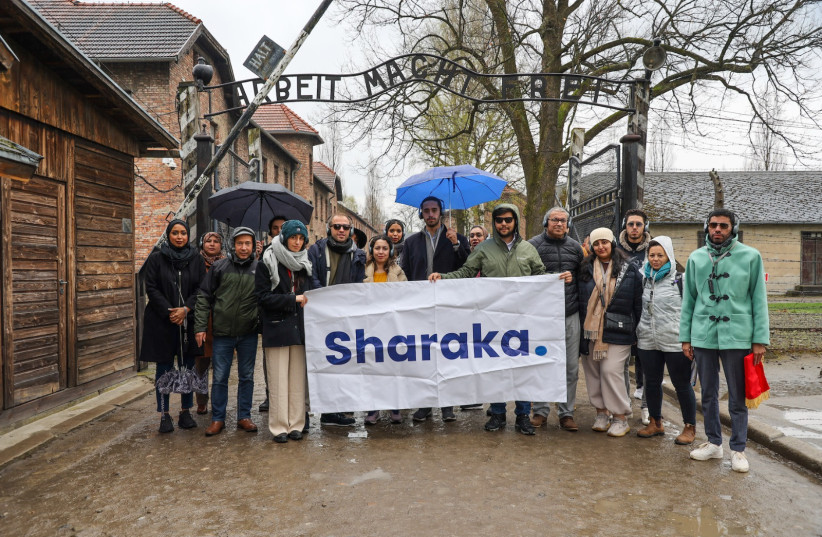22 Arab participants traveled to Poland where they participated in this year's International March of the Living, alongside 9,000 others.
The group of Arab participants had been brought together by Sharaka, an NGO that seeks to grow the impact of the Abraham Accords and build stronger, more positive relations between Israel and her neighboring countries. 2023 was the second year that the Arab delegation publicly attended the march.
For more stories from The Media Line go to themedialine.org
The participants traveled from Morocco, Bahrain, Turkey, Syria, Lebanon, Algeria and Israel.
“An Arab proverb says that seeing what happens on the spot is better than listening to what is said about what happened there. For this reason, nothing beats a visit to a place of memory that is universal in scope. To be present at Auschwitz and to participate in the march is an intense event that reinforces the conviction that I must do my best to teach about the Holocaust and to learn from it. We all need such a pilgrimage for our own education, but also to pay tribute to the millions of victims of human horror, horror caused by radicalism taken to the extreme,” reflected Mohammed Hatimi, a history professor at Sidi Mohamed Ben Abdellah University in Fez, who was part of the delegation.
Over the course of the Sharaka's program, participants engaged in a series of in-person and online lectures and conversations about the Holocaust (including on the efforts of Muslims who saved Jews), antisemitism and all forms of extremism, genocide in modern history, sources of moderation within Islam, and what they can do in their societies to promote tolerance. The program is conducted with the assistance of the Conference on Jewish Material Claims Against Germany (Claims Conference), which is sponsored by the Foundation “Remembrance, Responsibility and Future” and supported by the German Federal Ministry of Finance.

Holocaust education in the Arab world
The United Arab Emirates announced that it would be introducing Holocaust education as part of its state curriculum in January. The UAE will be the first Arab state to officially include the Holocaust in its curriculum.
Additionally, the UAE and Morocco commemorated International Holocaust Remembrance Day for the second year this year, which is believed to have been in part inspired by the Abraham Accord's influence.
In Bahrain, the King Hamad Center for Peaceful Coexistence has not announced any events to remember the Holocaust this year but did host a commemorative event last year.
Egypt and Jordan, the first two Arab countries to sign peace agreements with Israel, have not held any commemorations of the Holocaust in the decades since they signed those treaties.
Sudan, which is the fourth signatory of the Abraham Accords, will also not hold any events to mark the day.
Hudhaifa Ebrahim/The Media Line contributed to this report
